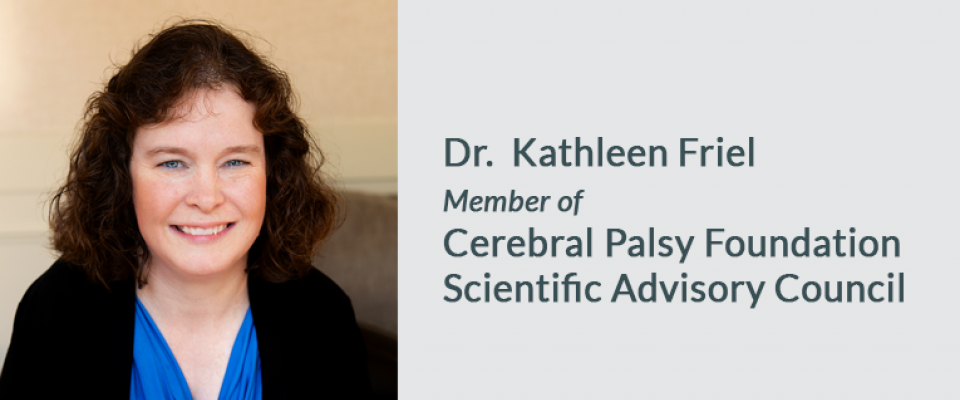You are here

Dr. Friel Invited to Serve on the Scientific Advisory Council of the Cerebral Palsy Foundation
Kathleen M. Friel, Ph.D., lab director of the Clinical Laboratory for Early Brain Injury Recovery at Burke Medical Research Institute, has been invited to serve on the Scientific Advisory Council of the Cerebral Palsy Foundation.
The Scientific Advisory Council helps guide the strategic direction of the Cerebral Palsy Foundation's work, ensuring innovation, relevance, and impact. The group of 21 members is comprised of many of the most renowned leaders in the scientific and medical community, including many past presidents and honorees of the American Academy of Cerebral Palsy and Developmental Medicine.
Dr. Friel’s research focuses on the importance of motor activity in cerebral palsy neurorehabilitation. Her laboratory aims to improve hand function in children and adults with CP. Her research examines the neural connections that are important for dexterous hand control, and how hand therapies can strengthen these connections in people with CP. Her research engages people with CP in intensive hand therapies, using intensive play-based therapy or robotic therapy. Her laboratory also uses non-invasive brain stimulation to study how intensive hand therapy changes motor circuits in the brain. By better understanding brain structure and function in children and adults with CP, it is hoped that scientists will best be able to devise new therapies for people with CP. Her laboratory also studies factors that contribute to motor impairments, such as sensory impairment and visual neglect. Her laboratory currently has NIH and foundation funding to study neural predictors of efficacy of hand therapy in children with CP, as well as robotic upper limb therapies for both children and adults with CP. Her laboratory also examines the potential for non-invasive brain stimulation to boost the efficacy of intensive play-based hand therapy and robotic therapy.

